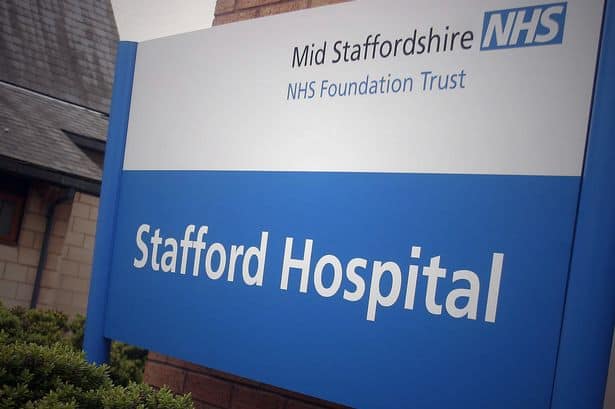
‘Sad and shameful day’ for NHS
pharmafile | February 7, 2013 | News story | Sales and Marketing | Cameron, GMC, Mid Staffs, NHS
The Department of Health has pledged its commitment “to a renewed focus on putting patients at the centre of everything we do” in the light of the final report of the Mid Staffordshire NHS Foundation Trust Public Inquiry.
The report’s author, Robert Francis QC, has made 290 recommendations to bring about a ‘fundamental culture change’ in the NHS after finding patients at Stafford Hospital were subjected to ‘appalling and unnecessary suffering’ there.
Francis said patients were ‘routinely neglected’, with hundreds dying between 2005 and 2008, many of whom were not cleaned properly or given medicines, food and drink.
His recommendations cover improving basic standards, creating more transparency and honesty throughout the healthcare system, greater support for compassion and care in treatment, and stronger leadership.
NHS leaders have acknowledged a need to repair public confidence on a ‘sad and shameful day’.
NHS Confederation chief executive Mike Farrar said: “This is a hard hitting but fair analysis of what happened in Mid Staffordshire and that is exactly what we needed.”
The DH will make a detailed response to the Francis report in March, but permanent secretary Una O’Brien apologised ‘wholeheartedly’ for its part in the failings at Mid Staffs “and the terrible impact it had on patients, their families and the standards of care”.
O’Brien said the DH “will be making plans over the coming days and weeks for the actions we all need to take” and the spotlight is now set to be shone on five more hospitals in England.
Promising to take action on Francis’s recommendations, she said: “We will be considering more profoundly our own behaviours as the steward of the health and care system and how we can do more to listen to patients and truly understand their experience of illness, care and recovery.”
Farrar said the NHS Confederation particularly welcomed Francis’ focus on culture rather than structures, on strengthening local commissioning, and “on transparency and candour and on listening to staff and patients and acting on their concerns”.
He concluded: “It is up to all of us in the NHS to take responsibility for putting things right. We cannot externalise responsibility for standards of care to government, politicians or regulators or anybody else.”
The Care Quality Commission also agreed with Francis that the NHS should maintain a ‘positive patient-focused culture throughout’.
The hospitals inspector was damned in his report, which found the CQC to have “a defensive institutional instinct to attack those who criticise it, however honestly and reasonably those criticisms are made”.
A healthcare regulator needs instead to be a model of openness and to welcome constructive criticism, Francis insisted.
CQC chief executive David Behan said: “People were badly let down by the NHS and those responsible for healthcare regulation and supervision. This kind of long-term failure must not happen again.”
In a statement to the House of Commons, prime minister David Cameron said CQC should bring forward proposals to appoint a chief inspector of hospitals.
The CQC said it will also consider appointing a chief inspector for social care and Behan promised to ‘listen much harder’ to what patients “tell us about the reality of the care they receive”.
However, he added that the primary responsibility for delivering quality care lies with the leadership of hospitals, care professionals, clinical staff and those who commission the care.
“No system can guarantee that there will never be failings,” Behan warned.
Anna Dixon, director of policy at the King’s Fund thinktank, also sounded a note of caution. “The real challenge is not the diagnosis and prescription for the problem, it is ensuring that the remedy is administered effectively,” she said.
“Even if all 290 recommendations were implemented now, the fundamental shift in culture can only be achieved if patient care is put top of the agenda for boards and is the first responsibility of professionals working in the NHS.”
“That will take time and commitment over many years,” she concluded.
Health minister Norman Lamb told ITV Daybreak this morning that Francis laid the blame for what went wrong at Stafford Hospital ‘primarily’ at the hospital Board’s door.
But he said that the Board’s chief executive left with a pay-off, adding: “We can’t have these rewards for failure.”
Clinicians should also be held responsible for poor performance, Lamb said. “There has to be a proper process with the GMC [General Medical Council] and NMC [Nursing & Midwifery Council] to ensure that those people who fail are brought to account.”
Francis is to meet privately relatives of patients who died, some of whom want current NHS chief executive Sir David Nicholson to resign over the scandal.
Adam Hill
Related Content

Digital mental health technologies – a valuable tool in supporting people with depression and anxiety
The potential benefits of digital mental health technology for managing depression, anxiety and stress, together …

A community-first future: which pathways will get us there?
In the final Gateway to Local Adoption article of 2025, Visions4Health caught up with Julian …

The Pharma Files: with Dr Ewen Cameron, Chief Executive of West Suffolk NHS Foundation Trust
Pharmafile chats with Dr Ewen Cameron, Chief Executive of West Suffolk NHS Foundation Trust, about …






